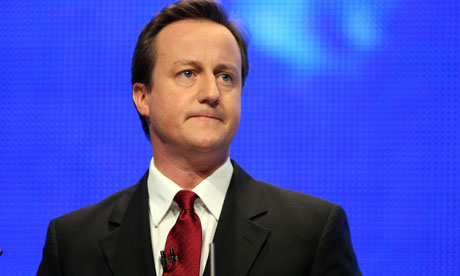David Cameron plans for British and French troops to serve in single brigade
Prime minister announces unprecedented military co-operation between London and Paris in future conflicts

David Cameron will tomorrow outline plans for unprecedented military co-operation between London and Paris that will see British and French troops deployed as a single brigade in future conflicts.
Amid rising concerns among Eurosceptic Tories about a Anglo-French military treaty, to be signed at Lancaster House on Tuesday, the prime minister is expected to tell MPs that the co-operation derives from a "hard-headed" assessment of Britain's national interest.
Cameron will reach out to his party's Eurosceptics when he outlines the treaty at the end of a parliamentary statement on last week's European summit in Brussels. The centrepiece of the agreement, which will see all branches of the armed forces working together, will be plans for the French and British armies to be deployed in a single brigade. The first step will be a joint exercise in Flanders which is to be followed by more training together with the aim of deploying troops "alongside each other", in the words of one government source.
"Working together with France on defence makes good practical sense," a senior government source said . "This is about two sovereign countries working together based on a hard-headed assessment of what is in the British national interest."
Anglo-French military co-operation will be controversial for the prime minister because the Tories criticised the St Malo declaration signed by Tony Blair and Jacques Chirac in 1998. But Downing Street says that St Malo was about co-operation under the European security and defence policy, while the treaty is about bilateral co-operation between France and Britain.
Cameron will be at pains tomorrow to reassure Tory Eurosceptics that the Nato alliance remains the bedrock of British defence policy. But he is expected to tell MPs that the French president Nicolas Sarkozy's decision last year to reintegrate France fully into Nato – 43 years after Charles de Gaulle withdrew from the central military command – makes co-operation easier.
The prime minister will also make clear that Britain and France will stop short of full integration because there will be times when the interests of Paris and London diverge. France strongly opposed the invasion of Iraq.
The French and British armies have been involved in the same military operations before. British forces in Bosnia served under the command of the French general, Philippe Morillon. But he was a UN commander.
Cameron and Sarkozy are drawing up plans for British and French troops, with the support of their navies and air forces, to be deployed together. "You could see the French and the British deploying together in African countries where Britain and France have shared interests," one government source said of the plans that could see joint deployments in the future equivalent of the British operation in Sierra Leone in 1999, frequent French interventions in Chad and the operations in Bosnia and Kosovo in the 1990s.
The Anglo-French summit on Tuesday caps a week of intense European activity for the prime minister. It began last Thursday with the European summit in Brussels where he won agreement that future rises in EU spending should be linked to national budgets. In return the prime minister agreed to Germany's demand for a modest treaty revision to underpin future bailouts of ailing eurozone countries.
Over the weekend, the prime minister hosted Angela Merkel, the German chancellor, at Chequers. They agreed to establish a new trade experts' group, to be co-sponsored by Turkey and Indonesia, that will examine ways of reviving the Doha round of trade talks.The group is to be co-chaired by Peter Sutherland, the first director general of the World Trade Organisation, and Professor Jagdish Bhagwati, the intellectual father of India's liberalising economic reforms. (guardian.co.uk)
=======================================================
No comments:
Post a Comment